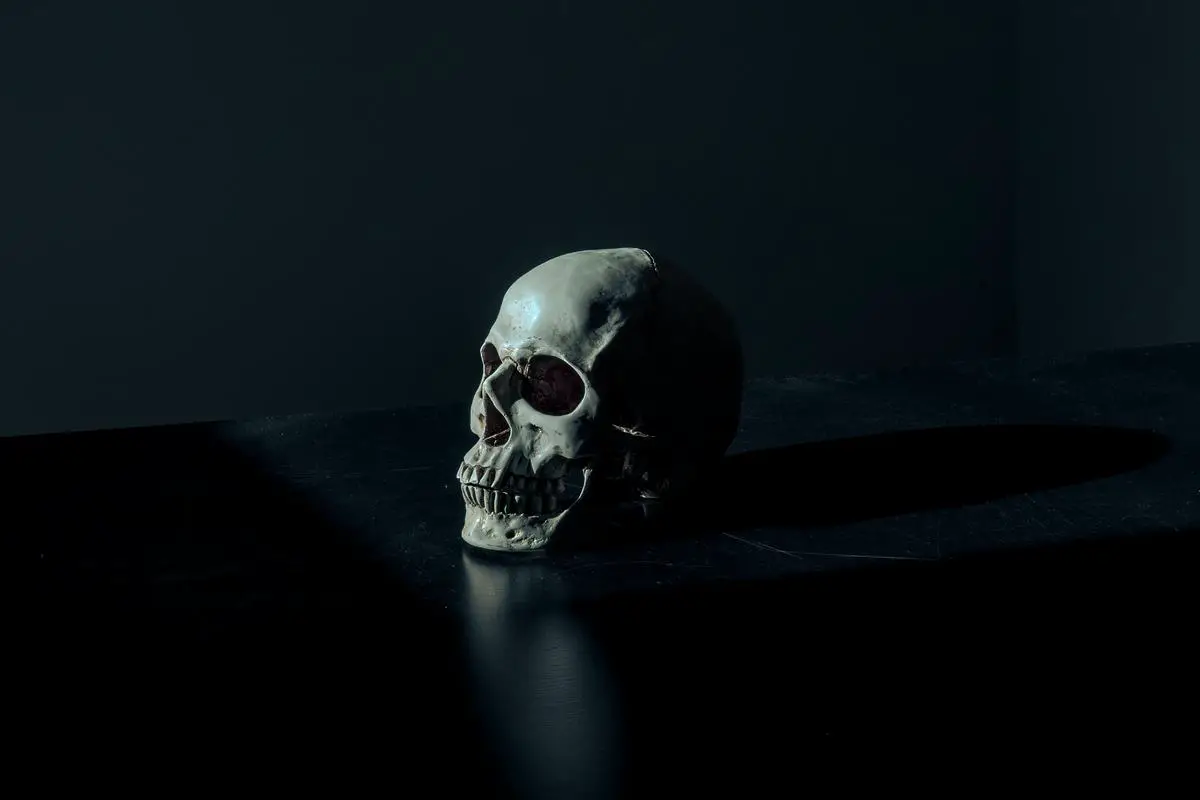Human dreams have long stood as a subject of intrigue, a gateway to deciphering the subconscious mind and, often, an indicator of deeply held fears, beliefs, and desires. Among the spectrum of dreams, those revolving around the theme of death — our own or others — carry particularly strong emotional weight. Indeed, death dreams are a universal phenomenon transcending cultural lines, yet their interpretations tend to be diversely influenced by cultural, religious, and societal contexts. This broad exploration delves into the nuanced world of death dreams, providing an understanding of their common characteristics, their inherent psychological interpretations, and importantly, their cultural significance encompassing Western and Eastern perspectives.
Understanding Death Dreams
Understanding Death Dreams: A General Overview
Dreams about death are prevalent in nearly all cultures, often eliciting a sense of fear and unease. These dreams can vary widely: someone might dream of their own death, the death of a loved one, or death in a more abstract sense. The interpretation of these dreams often depends heavily on personal beliefs and cultural context, as different cultures assign different meanings and significance to the concept of death.
Symbolism and Themes
Common symbols in death dreams might include graveyards, funerals, dying, and sometimes even reincarnation. According to psychoanalysis, these symbols don’t literally refer to physical death. Instead, they symbolize endings and new beginnings, transitions, or profound changes in the dreamer’s life. However, the interpretation of these symbols varies greatly among cultures.
Cultural Differences in Interpreting Death Dreams
Different cultures indeed offer varied interpretations for death dreams. In Western cultures, for example, dreams about death often yield negative interpretations and are largely associated with fear or the cessation of something. Owing to the fear of mortality prevalent in Western societies, death dreams might induce anxiety or stress.
Conversely, many Eastern and Indigenous cultures have a more positive outlook on dreams about death. For instance, in Hindu culture, dreaming about death is often interpreted as symbolic of a fresh start or spiritual transformation. In some Indigenous cultures, a dream about death may be considered a spiritual journey or an important message from the ancestors.
African cultures, too, interpret death in dreams differently from Western societies. Dreams in many African societies are seen as a communication medium between the living and the ancestral spirits, having spiritual and prophetic connotations. Therefore, death in dreams may signify ancestral communication or spiritual transformation.
The Fear of Death and Dreams
The fear of death, or Thanatophobia, is a common and powerful anxiety that can lead to such dreams. Existential concerns about death can manifest within dreams, offering a space for individuals to explore and confront these fears. The fear of death is universal, but its interpretation can vary among cultures, which is reflected in how death dreams are understood.
Potential Psychological Explanations for Death Dreams
Several possible psychological explanations exist for death dreams. One theory posits that they stem from psychological change and personal growth, as death is often symbolic of endings and new beginnings. Another theory comes from the field of psychodynamic psychology, suggesting that death dreams may be a reflection of subconscious thoughts or feelings relating to unresolved issues or repressed emotions.
Lasty, the continuity hypothesis in dream research stipulates that dreams reflect waking life experiences and preoccupations. Therefore, if a person thinks about death regularly due to work (e.g., healthcare professionals), personal experiences (e.g., loss of a loved one), or has prominent existential anxieties, it might be reflected in their dreams.
Interpreting dreams about death is a complex process that varies widely, influenced largely by personal beliefs, experiences, and cultural influences. Cultural contexts play a particularly significant role in ascribing meanings to such dreams.

Death Dreams in Western Cultures
Understanding Death Dreams in Western Cultures
It is not uncommon for people around the globe to dream about mortality. In Western cultures, notably the United States and Europe, these dreams about dying are understood through a combination of cultural and personal perspectives. The varied meanings attributed to these dreams arise from factors such as the context in the dream, symbolism, and the personal beliefs or experiences of the dreamer.
Influence of Religious Beliefs on Death Dreams
Religious beliefs significantly influence the ways in which individuals in Western cultures interpret death dreams. For example, in Christian societies, death can be seen as a transition to an afterlife. Therefore, dreaming of death might be perceived not as an ominous signal, but a transition or end of a certain phase in life.
In contrast, for those from a secular background or from religions with different belief systems – like reincarnation in some branches of Buddhism – death dreams may have a completely different set of interpretations. Here, death might represent transformation, rebirth, or profound change.
Societal Norms and Individual Interpretations
The societal norms within Western cultures often tend to view death dreams as negative or foreboding. However, individual interpretations can vary widely, based on personal experiences, beliefs, and attitudes towards death. Some people may interpret death dreams as a sign of impending doom or as a signal that something is wrong. Others might view them as an expression of subconscious fears or anxieties.
In Freudian dream analysis, for instance, death dreams are often associated with the desire for change or the need to let go of something holding the dreamer back. From this perspective, death in a dream symbolizes the end of something and the start of something new.
Media’s Role in Shaping Death Dream Interpretations
Media, in forms like movies, books, and television shows, plays a significant role in shaping how Western cultures interpret death dreams. Death is often portrayed in a sensational, dramatic, or tragic light, which can lead to heightened fear or anxiety around death dreams. However, the media can also offer alternative views, where death is represented as a natural part of life’s cycle, lending to a more acceptance-based interpretation.
Reactions and Changes Prompted by Death Dreams
Death dreams can prompt a range of reactions and potential changes in the dreamer’s life. These reactions largely depend on the dreamer’s personal outlook and interpretation of the dream. Some individuals might feel startled or anxious after experiencing a death dream, leading them to re-evaluate aspects of their life, confront fears, or seek comfort in spiritual or religious practices. Others might perceive it as a push to make significant life changes or start new endeavors. For some, it can also trigger discussions about mortality and provoke a healthy curiosity about the mysteries of life and death.
Individual beliefs, experiences, and societal influences shape interpretations and responses to death dreams within Western cultures, painting a detailed picture of our perception and reactions to the unknown.

Death Dreams in Eastern Cultures
Death Dreams and Eastern Cultures
Contrastingly, in Eastern cultures death dreams bear greater weight. They are deeply ingrained in their philosophical and religious traditions, considered not merely as subconscious musings but potentially prophetic messages from the spiritual world or predictions of future events.
Death Dreams in Chinese Culture
For the Chinese, dreams have always held a rich, potent significance that derives from ancient philosophic and spiritual beliefs, mostly rooted in Confucianism, Taoism, and Buddhism. In the context of death dreams, the interpretation varies significantly based on the specifics of the dream. For instance, dreaming about the death of a loved one usually is seen as an omen of longevity or good health for the person dreamt about. However, if one dreams of their own death, they may interpret it as indicative of substantial change or transformation, aligning with the Taoist belief of transformation and continual rebirth.
Japanese Interpretation of Death Dreams
In Japanese culture, traditions and interpretations of dreams are deeply influenced by Shinto and Buddhist beliefs and distinct folklore. Similar to Chinese culture, death dreams in Japan are typically seen as precursors of change, deriving from the Shinto belief in death and rebirth. Notoriously, if one dreams of being killed, it represents the elimination of harmful elements in their life, signifying a fresh start. Conversely, dreaming about someone else’s death is often interpreted as an expression of unconscious feeling or guilt towards that person.
Death Dreams in Indian Culture
Coming from a primarily Hindu perspective, the Indian interpretation of dreams is heavily infused with Hindu mythologies, spiritual beliefs, and astrology. The philosophical belief in Karma and reincarnation significantly influences how death dreams are interpreted. In Hindu culture, dreaming of death usually does not signify a physical death, but rather the end of a cycle and the beginning of another, a notion linked to the faith’s reincarnation beliefs. Specific details in the dream, such as who is dying or the circumstances of the death, can further refine the interpretation according to traditional dream dictionaries found in ancient Hindu scriptures.
Impact on Daily Lives and Beliefs about the Afterlife
Recognizing the significance these cultures accord to death dreams, these nighttime narratives can significantly impact the dreamer’s daily life. For example, an individual might make decisions, harbor worries, or perform certain religious rituals based on their dream. Additionally, death dreams in these cultures also shed light on their beliefs about the afterlife, reinforcing concepts of rebirth, Karma, transformation, the cyclical nature of life, and the spiritual realm.
Across differing cultures, dreams involving death have unique interpretations. However, a shared belief amongst these cultures is the notion of life as a cyclical process, and dreams being more than just subconscious mental activity.

Comparative Analysis
Interpreting Death Dreams Across The Globe
Dreams involving death are a common occurrence and are interpreted differently based on one’s cultural background and beliefs. Around the world, these dreams are seen through various perspectives, sometimes as a literal sign while other times as a symbolic representation leading to diverse interpretations.
Western Interpretation of Death Dreams
In much of Western culture, including the United States and Europe, psychoanalytic perspectives dominate interpretations. Sigmund Freud, the founder of psychoanalysis, asserted that dreams are the gateway to our subconscious minds. Therefore, dreaming of death might not symbolize literal death, but more of an emotional transformation or an end to something old to begin something new. It could indicate drastic lifestyle changes or a change in relationships or attitudes.
African Interpretation of Death Dreams
In many African cultures, dreams, especially those about death, have significant spiritual implications. Among the Zulu people of South Africa, for example, they believe that the dreamer’s ancestors communicate messages via dreams. Dreaming of death could symbolize warnings or messages from the spiritual realm instead of the Western interpretation of change or transformation.
Asian Interpretation of Death Dreams
In East Asian cultures such as China and Japan, dreams, particularly death dreams, are often considered an omen of future events. Dreaming of death can be regarded as an unfavorable sign, typically linked to illness or misfortune. However, in some aspects of Chinese culture, dreaming of death could also indicate longevity or a joyful event soon.
Middle Eastern Interpretation of Death Dreams
In the Middle Eastern cultures, particularly those strongly influenced by Islam, dreams are considered a form of divine revelation, akin to the dreams of prophets described in the Quran. As per the Islamic belief, dreaming of death could either be seen as a warning, a need for spiritual cleansing, or upcoming major changes in life, dependent on the specifics of the dream.
Comparative Conclusion on Death Dreams Interpretation
Interpreting death dreams depends vastly on the cultural, spiritual, psychological, and historical context of the dreamer. Each culture possesses a unique perspective based on their philosophical and religious underpinnings. Notably, though, while the specifics might differ, underlying themes of change, messages, and premonitions are shared across these cultures showing how human societies, regardless of geographical or cultural differences, perceive death and dreams.

Reflection on the myriad interpretations of death dreams across cultures dispels the notion of a monolithic understanding of such complex psychological phenomena. It reveals the intricate weave of cultural norms, religious beliefs, and societal attitudes that shape our individual and collective interpretation of death dreams. Through the comparative analysis, the noticeable correlation between cultural attitudes towards death and interpretations of these dreams becomes prominently visible. Such comprehension allows for a more empathetic understanding of dream experiences across cultures and fosters a more inclusive dialogue about the universal phenomena of death dreams.
